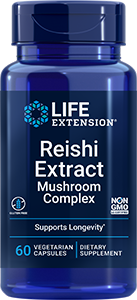
Beta Glucans: All You Need to Know
Published: October 2021 | Updated: June 2024
When it comes to your stay well strategy, it's not only important, but essential to have plenty of tools in your immune health arsenal. And although vitamin C, zinc and elderberry tend to be the popular kids on the immune health block, beta glucans have gained more traction—and for good reason! They have been clinically studied to help promote a healthy and balanced immune response, among other benefits. But what exactly are they and how do they benefit your overall health?

What are beta glucans?
Beta glucans are what are known as polysaccharides, dietary soluble fibers that are broken down by the beta glucanase enzyme and help activate the body's healthy immune response, particularly focusing on supporting innate immune response. They aren't produced by the body on its own, but luckily there are an abundance of sources of beta glucans, including through diet or supplementation, that are easily digestible and fit right into a healthy lifestyle.
While the principal benefit of beta glucans is focused on immune health, it is important to note that since beta glucans are dietary fiber, they are beneficial for digestive health, and also support heart health and healthy insulin sensitivity. Beta glucans in mushrooms have also been found to help support a healthy inflammatory response.
What do beta glucans do for the immune system?

Now that you know what beta glucans can do, you might be wondering how exactly they can benefit your health. Beta glucans are immune response activators, which means that they tell your body's primary defenders (macrophages, neutrophils and NK [natural killer] cells) to get to work when a challenge may arise. They are molecules that help the immune system to react quickly and efficiently when it needs it most. They are also effective in supporting against the immune challenges that come with the change of seasons. They do this by binding to various immune cell receptors to promote a healthy immune response. This helps further augment their effectiveness in defending against immune challenges.
In fact, one review of 34 randomized controlled trials of dosages of beta glucans intake ranging from between 2.5-1000 mg daily over up to 6 and a half months found that beta glucans primarily benefited the body by modulating immune health and protecting against both every day and seasonal immune challenges.
Now that you know all about how beta glucans function, where can you find them? What is the best source of beta glucans and is one source better than the other?
Which foods are good sources of beta glucans?

If you've been asking yourself "Does oatmeal contain beta glucans?" you're in luck. Turns out that Goldilocks' porridge that was "just right" has truth to it in its health benefits! Oats are a food rich in immune supportive nutrients, including selenium, zinc, copper, iron and *drum roll, please* dietary fiber in the form of beta glucans. Next time you're wondering what exactly to eat for breakfast, a hearty bowl of oatmeal has the one-two punch of high nutritional value and maintaining a healthy immune response.
Oatmeal not really your kind of meal? There are plenty of other healthy staples that contain beta glucans. While beta glucans are typically found in bacteria, yeast and plants, some of the most well-known food-based sources of beta glucans include:
- Mushrooms (including reishi, maitake and shiitake)
- Seaweed
- Brewer's yeast
- Baker's yeast
- Whole grains (including oats, bran and wheat)
- Barley
Eating a healthy diet is a large part of the equation when it comes to maintaining optimal health, so try and remember to eat the rainbow and fill your plate with fresh fruits and veggies.
Explore Our Best Immune Support Supplements
What are beta glucan supplements?

Prefer that seaweed stays in the sea, rather than on your plate? Not huge on the texture of mushrooms? Have no fear! Beta glucan supplements are a great option for those that are worried that they may not get enough beta glucans from diet alone. Beta glucans supplements typically contain extracts of mushrooms combined with brewer's or baker's yeast in capsule form.
One study of beta glucan supplements found that between 70 subjects taking placebo and 71 subjects taking 1,3/1,6 beta glucans from brewer's yeast, those who were taking the beta glucan experienced a lesser degree of immune challenges when they were encountered. They also supported a healthy mood.
Are beta glucan supplements safe?

Beta glucan supplements are generally seen as safe and can be taken as part of a regular supplementation routine. But, as always, if you're taking other supplements or any medications, check with your healthcare practitioner before incorporating beta glucan supplements into your wellness routine. And always remember to follow the instructions printed on the label to ensure you're taking your supplements as instructed.
People who also eat a low fiber diet may want to increase doses of beta glucans gradually in order to avoid occasional bloating that could occur when introducing higher concentrations of fiber, even in supplement form.
How much beta glucans should you take a day?
The amount of beta glucans you should take a day varies depending on the health needs that you're focusing on. Taking a dose between 100 mg to 500 mg a day has been clinically studied to help support optimal immune function.
And if you're looking for other immune supportive nutrients, but aren't sure what you might need, take one of our Supplement Quizzes to help fill in the gaps!
References
- Cerletti, Chiara. "Edible Mushrooms and Beta-Glucans: Impact on Human Health." Nutrients. June 2021. https://www.mdpi.com/2072-6643/13/7/2195
- Chen, Oliver et al. "The Role of Oat Nutrients in the Immune System: A Narrative Review." Nutrients. March 2021. https://pubmed.ncbi.nlm.nih.gov/33804909/
- Dharsono, Tanita et al. "Effects of Yeast (1,3)-(1,6)-Beta-Glucan on Severity of Upper Respiratory Tract Infections: A Double-Blind, Randomized, Placebo-Controlled Study in Healthy Subjects." J Am Coll Nutr. January 2019. https://pubmed.ncbi.nlm.nih.gov/30198828/
- Goldman, Rena. "Beta Glucan: The Heart Healthy Fiber." Healthline. December 2016. https://www.healthline.com/health/beta-glucan-heart-healthy
- Vetvicka, Vaclav et al. "Beta Glucan: Supplement or Drug? From Laboratory to Clinical Trials." Molecules. April 2019. https://www.ncbi.nlm.nih.gov/labs/pmc/articles/PMC6479769/
- Vlassopoulou, Marigoula et al. "Effects of fungal beta-glucans on health - a systematic review of randomized controlled trials." Food Funct. April 2021. https://pubmed.ncbi.nlm.nih.gov/33876798/
- Wong, Kathy. "What Is Beta-Glucan?" Verywellhealth. January 2021. https://www.verywellhealth.com/the-benefits-of-beta-glucan-89418
Like what you read?
Please subscribe to get email updates on this blog.





